Gaining hands-on experience with electronics can be both rewarding and educational, but the cost of equipment can often be a barrier for beginners.
So how to gain hands-on electronics experience?
Fortunately, numerous ways exist to dive into electronics without breaking the bank. You can begin your journey with basic components like resistors, capacitors, LEDs, switches, and breadboards. Reusable components of any toy or computer will also be helpful in project making. Start with simple projects that are made with basic elements and can also use DIY kits.
This article will walk you through various methods to get started with electronics using affordable and readily available materials.
Hands-on electronics experience
Electronics is an interesting field that has digitized the whole world. It allows you to build and understand how everyday devices work, from smartphones to home appliances.
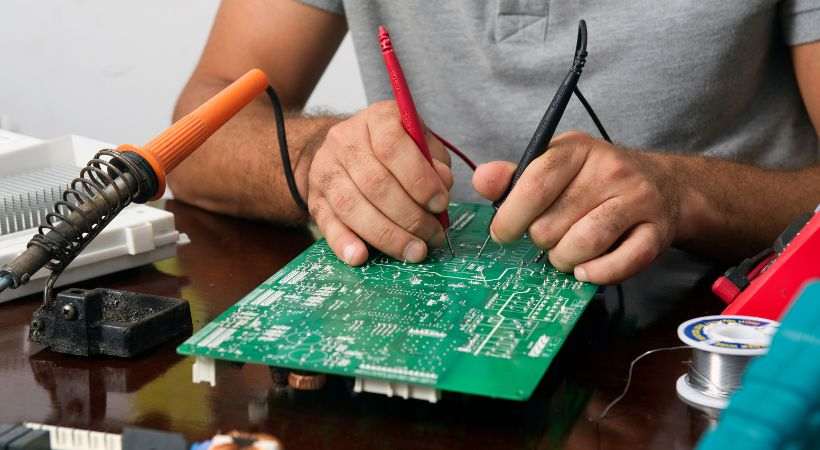
As a beginner, you might be interested and want hands-on experience in electronics because of your curiosity about how the device works.
For the hands-on experience, you don’t need expensive tools and components, you can start with affordable tools.
Before diving into hands-on projects, having a well-equipped electronic lab is essential. Set up your lab which contains all necessary components.
Make sure to have measuring tools like a multimeter, prototyping tools breadboard, soldering iron, and wire cutter.
Stock up on resistors, capacitors, transistors, diodes, LEDs, and integrated circuits (ICs). Having a variety of these components allows you to experiment with different circuits.
Dedicating a distraction-free space for your work will allow you to focus better and maintain your equipment in an organized manner.
After the lab set-up, I will explain how to gain practical electronics experience without costly equipment.
1. Begin with basic components
Without buying expensive electronic components, start with basic components such as resistors, capacitors, LEDs, and switches.
Learn how these components are used and how they operate. Understand the breadboard and its layout. After understanding these basics you can start with building various projects.
These parts are the building blocks for more complex projects, and mastering them will provide a solid foundation for your further exploration into the world of electronics.
As you gain confidence and experience, you can gradually move on to more advanced components and circuits.
2. Use recyclable materials
Using recyclable materials in hands-on electronics projects is an effective and sustainable approach to learning.
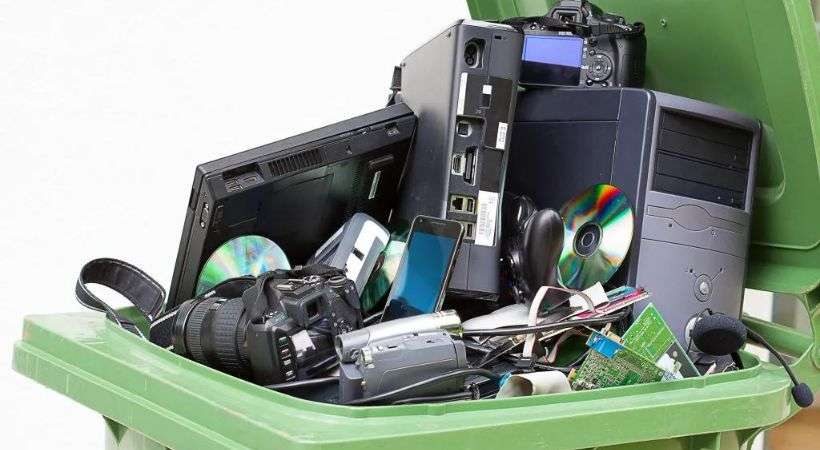
You may recover valuable parts like resistors, capacitors, LEDs, and switches by disassembling outdated devices like radios, computers, and toys.
This will reduce electronic waste and will also provide an understanding of how different components work in the real world.
With this approach, electronics may be available to you without buying costly equipment, promoting innovation and creativity.
3. Simple projects for beginners
Working with simple projects is an effective way to gain hands-on experience with electronics as it provides an understanding of fundamental concepts.
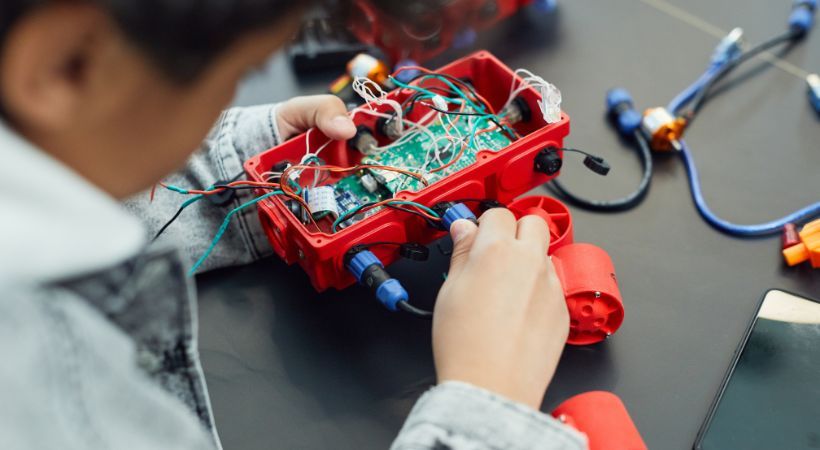
By working on basic circuits, beginners can learn about the flow of electricity, the function of different components, and the principles of circuit design.
On the other hand, these projects require inexpensive, easy-to-use materials like resistors, capacitors, LEDs, and batteries, making them accessible to everyone. So you don’t have to spend a lot of money to get experience with electronics.
By this, you will understand how various electronic components work together to build functional devices and gain a good electronics experience.
4. Start with basic tools
At start, you don’t need advanced tools so when it comes to tools for electronic circuits, you find lots of expensive and advanced tools in the market.
You don’t need to buy such expensive tools, you just need a multimeter and other tools like wire cutters/strippers and tweezers.
The multimeter is an essential device used for measuring resistance, capacitance, voltage, and current, and even checking the continuity of the circuit connections.
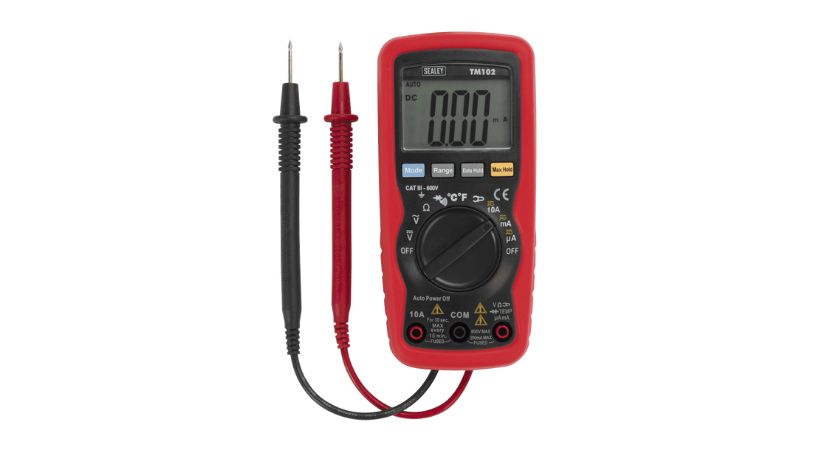
Keep a multimeter with you to measure the resistance of the resistor, capacitance of the capacitor, voltage, and current across each component.
You can also check the condition of every component before placing it on the breadboard using continuity mode.
The multimeter will help you understand circuits and will allow you to do experiments with electronics.
Now if you are confused about which multimeter is good and affordable, here are some recommendations.
5. DIY kits
Without the need for expensive equipment, DIY kits for beginners are an excellent way to gain hands-on experience with electronics.
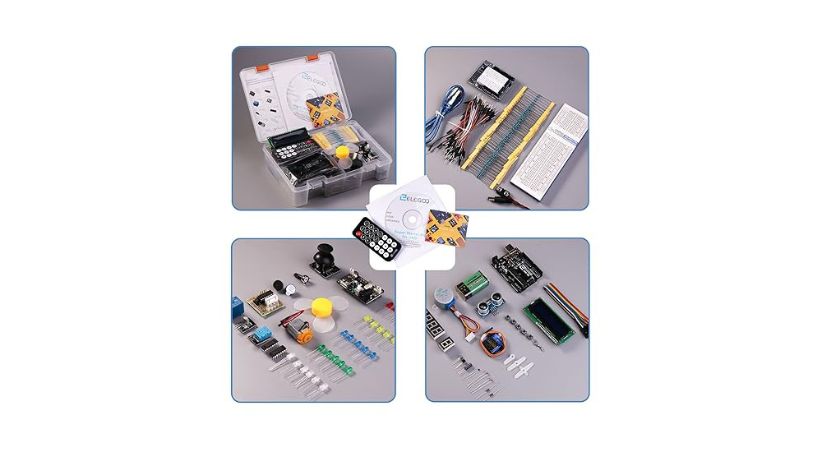
Worked with different DIY kits.
These kits usually include a breadboard, power supply, and several necessary parts including resistors, capacitors, LEDs, and simple sensors.
The kits also include detailed instructions and project guides, which help beginners understand how to assemble and troubleshoot circuits step-by-step.
DIY kits make an ideal starting point for anyone interested in exploring the world of electronics.
As I told you earlier, learning and getting hands-on experience with electronics is inexpensive as it only needs your keen interest and motivation to start with it.
Significance of hands-on experience
The hands-on experience in electronics acts as a bridge between theoretical knowledge and real-world application, helping beginners develop a deeper understanding.
Here are some significant importance of gaining particle experience in electronics.
- Helps you understand electronics better
- Helps you to develop basic skills in using different tools and soldering
- Builds confidence by fixing mistakes and making things work
- Teaches you to solve problems by thinking through issues
- Prepares for advanced learning and career opportunities
The hands-on projects are not just beneficial; they are essential for truly understanding and excelling in electronics.
Conclusion
Learning electronics doesn’t have to be expensive.
Starting with basic, inexpensive components, and using recycled components of old devices will give you the effective opportunity to gain hands-on experience.
Working on simple projects and using DIY kits provide a solid foundation for understanding electronics.
If you embrace the process of exploration and discovery, you’ll realize that electronics is fascinating and accessible, even for those on a tight budget.
Remember, without going over budget, you can explore and appreciate the world of electronics with a little imagination and resourcefulness.
Thank you and start learning electronics now…
Other useful posts:
